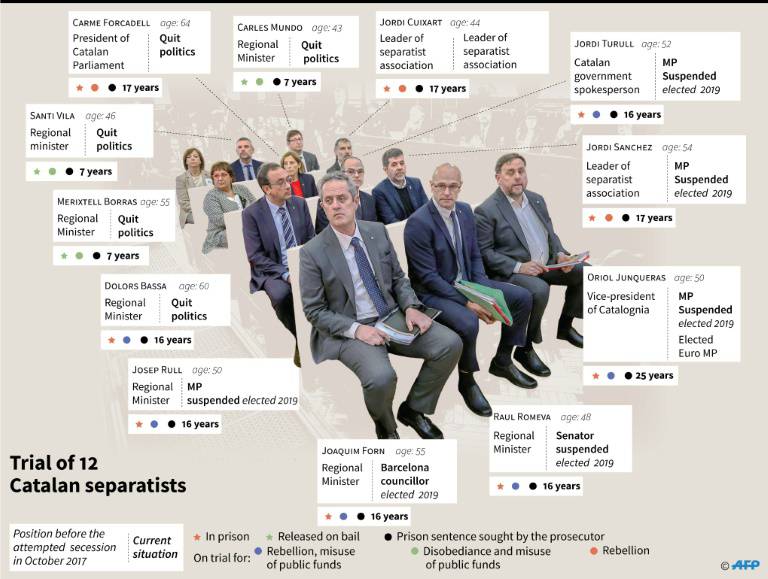×
The Standard e-Paper
Smart Minds Choose Us

Spain's Supreme Court on Monday sentenced nine Catalan separatist leaders to prison terms of between nine and 13 years for sedition for their role in a failed 2017 independence bid.